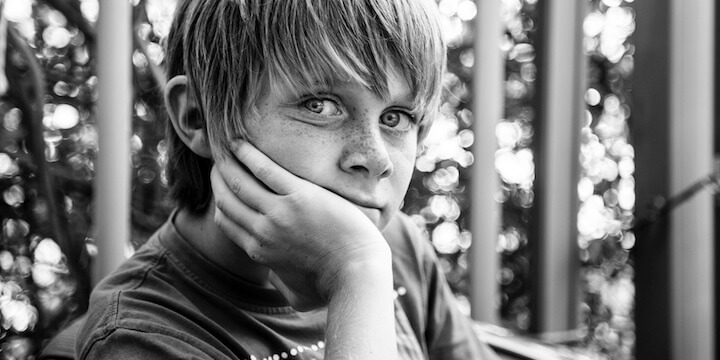A survey conducted by ABC’s Behind the News asked children what worries them, and what makes them feel happy and sad. 20,000 Australian children aged between 6 and 16 years of age participated in the survey.
What do children worry about?
According to the survey children feel most worried about their future, with 43% of children expressing they were worried about their future all or most of the time. Family was the next biggest concern with 39% of children expressing family related worry, followed by health (37%), friends (34%), body (31%), bullying (30%), world problems (28%), school (27%), and being different (24%).
A concerning issue this survey highlighted was that 1 in 5 children expressed they would not speak to anyone about their problems. The survey asked children who they would talk to if they felt worried, 19% of children reported they would not talk to anyone. However, 46% of children would talk to their parents, 24% would talk to friends, 5% would talk to their teacher and 4% would talk to a relative. Only 2% of children expressed that they would speak to a counsellor or support service.
The survey also assessed how often children were feeling worried. 14% of children indicated they feel worried all of the time and 7% of children reported they never feel worried. As children get older they seem to worry more, with 38% of 16 year olds feeling worried all or most of the time, compared to 22% of 12 year olds and 9% of 6 year olds.
Issues affecting children
Bullying
Bullying can occur when a child is: threatened, harmed physically, excluded or teased by another child. Bullying can be done in person, or online (aka cyber bullying). Note, these are only some examples of bullying and bullying can come in many more forms. Research conducted in Australia on school-aged children, has found being bullied can increase the likelihood of experiencing anxiety and depression. Two thirds of children who completed the survey reported they had experienced bullying and 39% of those children expressed the bullying continued for a year or longer. Children of all ages reported they had been bullied at some point in their life. Children between the ages of 8 to 10 seemed to report the most amount of bullying, possibly because there has been increased awareness and education around bullying.
Body Image
Research has found body image dissatisfaction can contribute to eating disorders and depression. Typically body image is thought of as an issue effecting females. However, the survey found body image is a concern for both genders almost equally. 27% of males and 31% of females reported they were concerned about their body image with 27% of males and 35% of females wanting to change their bodies.
Happiness
The survey not only asked children what worried them or made them sad, children also were asked if they felt happy. Two thirds of the children reported they felt happy all or most of the time, and there seemed to be little to no differences between gender (63% males and 65% females felt happy). Although this is good news, there are still children who feel unhappy, one third of children reported they do not feel happy most of the time.
Finding assistance
If you, your child, or someone you know is suffering from problems with anxiety/worry, body image or is feeling down, you can contact Strategic Psychology to make an appointment with one of our child psychologists. Additionally you can call Lifeline (13 11 14) or Kids Helpline (1800 551 800).
References
ABC. (2015). What worries Australian children? BTN Happiness Survey finds 1 in 5 wouldn’t talk about problems. Retrieved from: http://www.abc.net.au/news/2015-10-05/btn-happiness-survey-australian-children-mental-health/6820652
Bond, L., Carlin, J. B., Thomas, L., Rubin, K., & Patton, G. (2001). Does bullying cause emotional problems? A prospective study of young teenagers. Bmj, 323, 480-484. doi:10.1136/bmj.323.7311.480
Cash, T. F., & Deagle, E. A. (1997). The nature and extent of body‐image disturbances in anorexia nervosa and bulimia nervosa: A meta‐analysis. International Journal of Eating Disorders, 22, 107-126.
Related reading:
